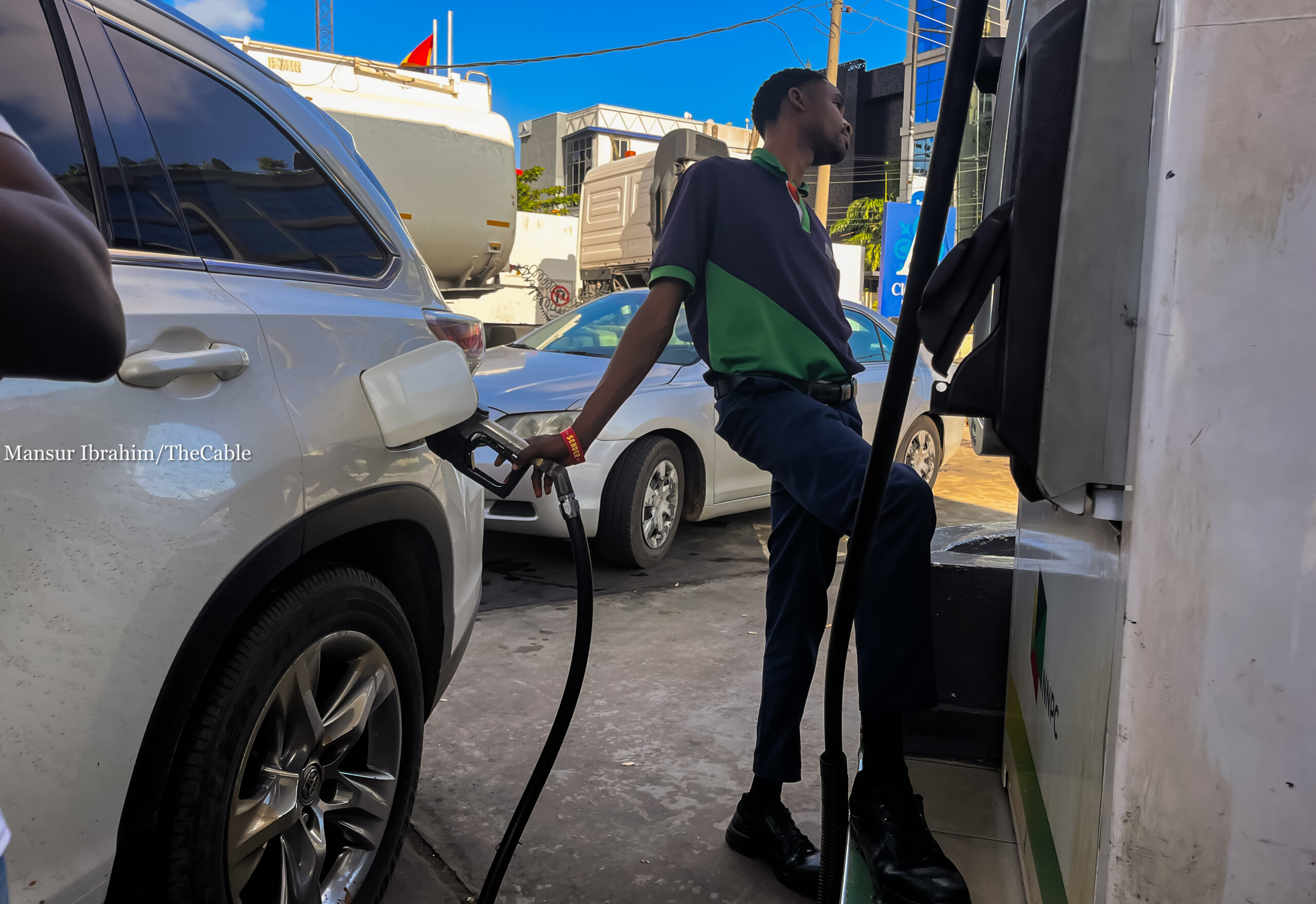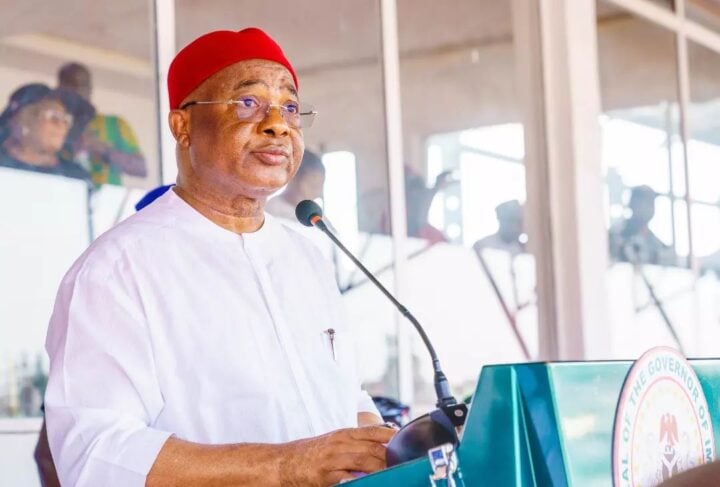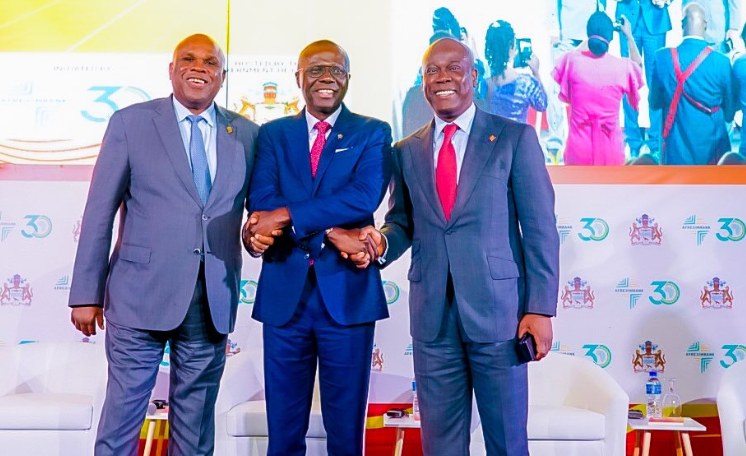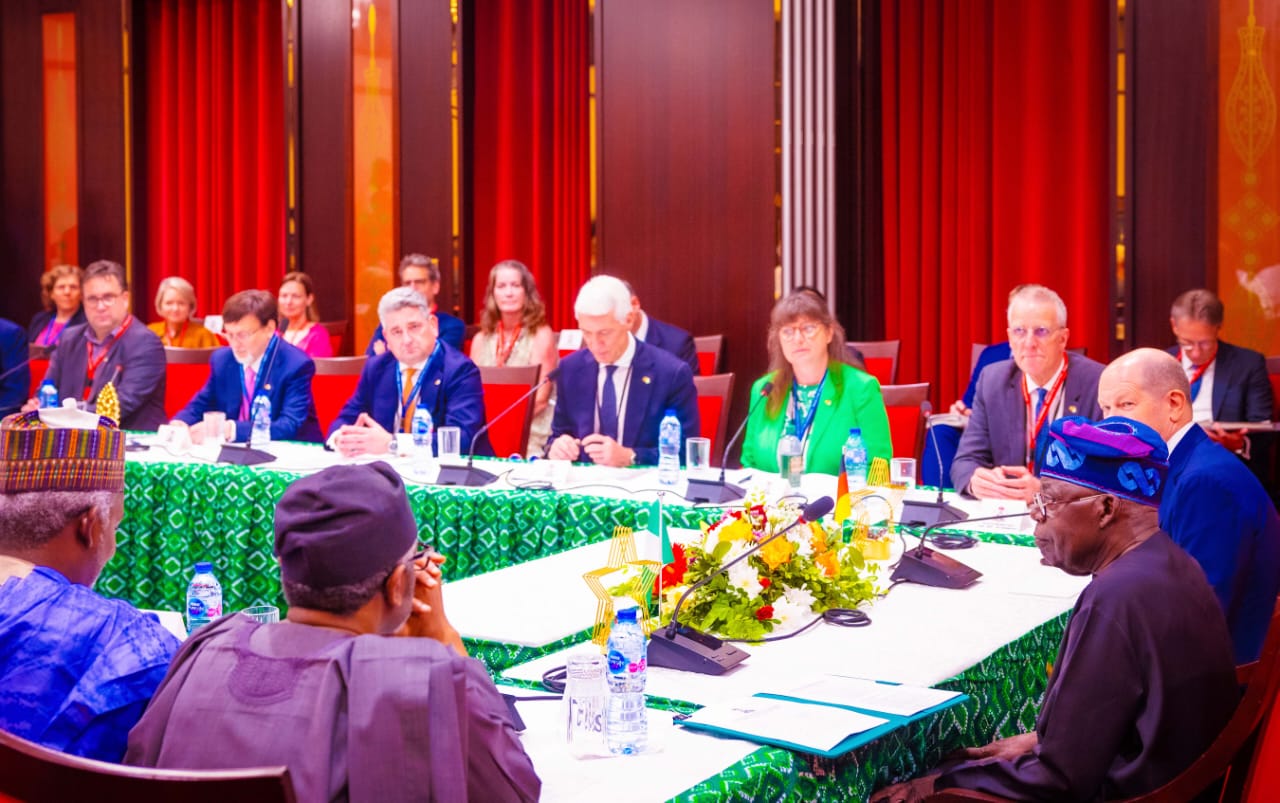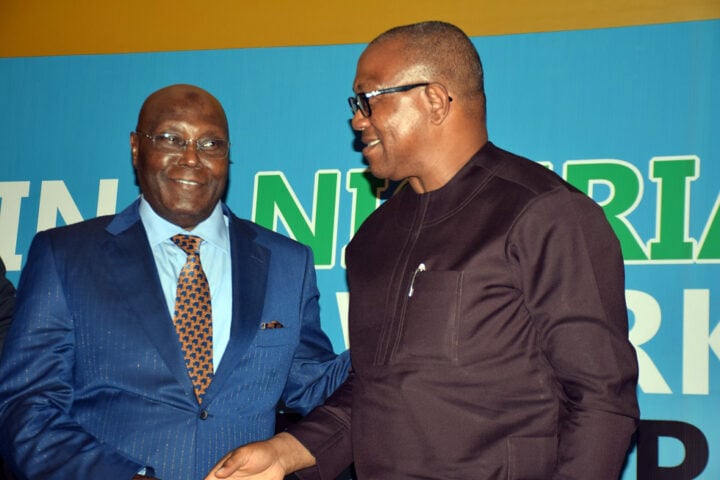I was taught in my secondary school days in, Agricultural Science, Economics, and Human Geography classes that, Agriculture was (used to be) the mainstay of the Nigerian economy, before oil was discovered in commercial quantity at Oloibiri near Port Harcourt, in the present day Bayelsa State, in 1957. What happened (to Agriculture) thereafter? We more or less abandoned it for the more lucrative oil business. Did we start drinking oil, instead of Gari? The answer is NO. We started using oil money to import food and other things that could otherwise be produced locally. What we simply did was that, we changed our mentality from that of a production-oriented nation to that of a consumption-oriented one. In the process, imports gradually began to outstripped export. This gave rise to a continuous imbalance in our terms of Trade”, and by implication, “Balance of Payment” deficit.
While this balance of trade (payment) deficit persists, periods of oil boom ensured that we papered over the cracks. Ideally, one would have thought that, even if the minders of the economy, then did not invest in a way that diversified the economy. Not even the frantic search for alternatives to oil as a source of energy bothered them. But a right-thinking person would expect that, they would at least, invest in our local capacity, with a view to enhancing our presence on the value chain of oil and gas. But hell NO! Refineries built, decades ago, were of lower capacities than the local demand, especially, as the need for industrial expansions grew, as a reaction to population increase. Rather than investing, with a view to diversifying the economy, Nigeria became a monocultural economy that is over 90% oil-dependent. As if that were not bad enough, the little refining capacity we have, to cater for domestic demand to keep the local economy running was never maintained, let alone, consolidated upon. From Port Harcourt through Warri, to Kaduna, the facilities became mere decorative structures that signpost our national failure as a people. They remain moribund. Successive governments failed to strengthen the country’s local refining-capacity to ensure self-sufficiency in petroleum products needs. The term, “Turn Around Maintenance” (TAM) became a euphemism for making available, “food for the boys” in the ministry of Petroleum Resources, and in the corridor of power. Funds, enough to build a larger capacity brand-new refinery were from time to time, pumped in, for TAM, with nothing to show for it. For decades, not a liter of refined products came out of the facilities. I am not going to bore you with tales about hundreds of engineers who draw monthly emoluments from the public treasury, doing nothing productive.
When former Head of State, late General Sani Abacha, in the mid-90s, ordered what looked like a temporary importation of fuel, as a stop-gap measure, pending the completion of TAM, we all thought it would last for about a couple of months, and local refining would be back on its feet. But before anyone could say “Rankya Dede”, we began to import refined products for local consumption, without giving a hoot about how and when the maintenance would be completed. As a matter of fact, the thought of completing the project became bad news for those benefitting from the heist. Gradually, one thing led to another, and we became 100% import-dependent in refined petroleum products up to this moment. We now have the unenviable record of being the oil producing nation that imports all of its domestic needs for refined products. Pump price in Nigeria thus become dependent on the volatility of the international oil market, (and it continues to be so, up to this moment). But, that is a phenomenon over which the federal government has no control. So, in order to keep the products within the range of affordability of the masses, for political exigencies (to avoid a political backlash), the federal government has had to subsidize it. And within the twinkling of an eye, the oil subsidy regime became a cesspool of corruption, creating instant billionaires in international currencies. Oil and gas magnates, whose offices are located in their briefcases, were all over the place, trying to out-do one another on who milks the Nigerian State the most. Some allegedly claimed payment for products that were never imported. Petrol subsidy payments, therefore, grew by 349.42 percent from ₦350 billion in 2019 to ₦1.573 trillion in 2021.
While the benefits of the subsidy could hardly cascade down to the downtrodden, the comprador bourgeois class became instant billionaires in hard currencies. Yet, an average Nigerian became multidimensionally poorer, by the day, as the country bled, financially.
Advertisement
The burden of subsidy payment became so choking that, the government began to contemplate its removal. For more than a decade, successive governments mooted the idea of its removal, but none could muster the required political courage to do so, due to the expected socio-political consequences. Even the immediate past (Buhari) administration was not courageous enough to remove it, despite having a legendary record of getting away with “murder”. But Tinubu, on the day of his inauguration (29th of May 2023), without any prior hint, announced that subsidy had been removed, one month ahead of the proposed date of its total removal, by the then outgoing government. While delivering his inaugural address to the nation as the newly sworn-in Commander-in-Chief, and President of the Federal Republic of Nigeria, he said, “Fuel subsidy is gone”. The rest, as they say, is history. Some public policy analysts described the action as putting the cart before the horse, as there was no policy alternative that could deaden the pain it inflicts on the masses, apart from the usual rhetoric of “I feel your pains; we need to make sacrifices by enduring the pain”, among others. But Nigerians have had enough of those rhetoric, to last them a lifetime.
The cost of transportation, and by implication, the cost of living went out of the roof, as a result of the ripple effects of the new zero-subsidy regime. Prices of some (daily) essential commodities have, since then, increased by close to 500%. Nigerians have become more than two times, multidimensionally poorer than they were, by this time last year. The “battle of survival” in Nigeria, becomes that of the fittest, and a daily sport for everyone who still breathes.
To worsen the situation, the new administration decided to also float the country’s currency – the Naira, against the major currencies of the world (especially, the Dollars), in line with the neo-liberal economic advice from Bretton Woods institutions – The International Bank for Reconstruction and Development (IBRD, also known as the World Bank), the International Monetary Funds (IMF), among others. They did this, even though, we export virtually nothing, to fetches us the badly needed, but sadly lacking Forex, safe for crude oil. Daily, we watch the Naira compete with the Zimbabwean Dollars, in a race to the abyss of worthlessness that a national currency has ever attained. A dollar now exchanges for as much as ₦1,300 (one thousand three hundred Naira). I don’t intend to bother you with the tales of “the good old days”, when a dollar, reportedly, exchanged for less than eighty Kobo (₦0.8). Just imagine, when a dollar exchanged for three hundred and fifty Naira (₦350)around 2017, sounds like an eon ago.
Advertisement
So, as we speak, a deadly combination of fuel subsidy removal, and the floating of the Naira against the Dollar, has unleashed on Nigerians, an untold socio-economic hardship of a dimension never witnessed before now, at least, in recent years. Costs of living, like feeding, healthcare service, school fees, transportation, among others, have gone up, to a stratospheric level.
Meanwhile, one of the arguments for fuel subsidy removal is that, “the scheme is corruption-ridden”, and as a result, denies the intended beneficiaries, the opportunity of enjoying it. They also claim that, if subsidies were removed, more fund would be available for governments to provide more social amenities that would make life a lot easier, than “buying cheaper petroleum products” could ever achieve. For the sixth month running now, the federal government has purportedly been saving money, but has not yet identified possible areas of intervention that would alleviate the pains inflicted on Nigerians by subsidy removal.
Some took the neo-liberal argument to the level of absurdity, positing that, government should not be subsidising anything, as according to them, it engenders a culture of laziness, among the beneficiaries. This is an argument that is better put up against the lifestyles of our political office holders. Meanwhile, the West, the axis from which the idea was brought in, where praises pour in for the Tinubu administration over the removal of subsidy, do subsidise a number of sectors in their society, thus easing their citizens’ livelihood. Agriculture, healthcare, even energy, for instance, is being subsidised, one way or the other, by those countries, who rammed the lethal socio-economic therapy down the throat of the federal government. But thank goodness, President Tinubu had on several occasions alluded to the fact that, Nigerians are suffering at the moment, more than before he assumed office. That is an encouraging signal that empathy, no matter how little, is still domiciled somewhere in the corridor of power. He also, in one of his addresses to the nation, since he assumed office, promised to come up with schemes that will alleviate the sufferings of the people.
The question now is, what do we subsidise, to cushion the effects of the new regime of zero-fuel-subsidy? There are many sectors among which president Bola Tinubu could choose to intervene, by way of subsidising. Healthcare, for instance, is one. The costs of medication have become almost unaffordable to the majority of the masses. To treat the commonest of diseases – malaria, in Nigeria today, requires nothing less than ₦5,000. Yet, this is a country where the payment of ₦30,000 minimum wages has become more difficult to implement, than it is for the United Nations to resolve the decades-long Israeli-Palestinian conflict. Come to think of it, a family of five, living on a monthly minimum wage of ₦30,000 (assuming the governments agree to pay), by the time two or three members of the family fall sick, and require treatment for malaria in a month, they would be left with, at most, two-third of the monthly income to live on, for the rest of the month. Out of whatever remains, they will have to buy foodstuff. A bag of rice is between ₦50,000 to ₦80,000,depending on the brand. To fill a 12.5 kg cylinder of cooking gas, you need more than ₦13,000. Do not also forget that, the earner of the ₦30,000 is expected to transport himself, or herself, to work for the next 30 days out of the remaining amount, if he or she must earn the next salary. Furthermore, there are other bills, like the house rent, electricity bill, water rate, among others, to be taken care of. With the above scenario being the case with the majority of Nigerians who have been described as multidimensionally poor, the introduction of subsidy for healthcare, and other essential services would not be a bad idea.
Advertisement
And, if Agriculture is where the Federal Government wants to intervene, they must look for a way of subsidising costs of operation for the farmers, and create opportunities for them to scale up production, as well as for investors to improve local presence in the agriculture value chain, to strengthen our national food security.
The government needs to be reminded that, there is a limit to the elasticity of the masses’ resilience. That is why, it is imperative for Abuja, and other seats of government in the land to, as a matter of urgency, look at areas of possible intervention, before the situation gets out of hand.
I read in the news that the federal legislators complained about their offices being daily besieged by “corporate beggars”. That is an eloquent testimony to the fact that Nigerians are, currently, going through a lot of economic hardship. But, I also learnt that some overfed Ministers are saying that Nigeria is too broke currently for any kind of subsidy, as the federal government purportedly struggles to pay workers’ salary. Meanwhile, the country is not too broke to gift hundreds of SUVs to over four hundred and sixty federal lawmakers, with each of the vehicles going for about ₦160 million. Remember, the President just unveiled the largest federal cabinet in the history of our nationhood – 48, instead of 36.
So why won’t the federal government subsidise in sectors like health, education, agriculture, transportation, among others, from which the masses could benefit? Why won’t they come up with a subsidy regime that would be corruption-free, using their experience with the removed fuel subsidy?
Without any further delay, the federal government must, therefore, look for one or two, very critical sectors, to subsidise for Nigerians’ “rights to life” to remain unviolated, as a means of sustaining “social order”. Otherwise, what we (they) saw during the #EndSARS protest in October 2020, might be a child’s play, compared to what would happen. Like the saying goes, a hungry man, is an angry man. A word, they say, is enough for the wise.
Advertisement
Abubakar writes from Ilorin, Kwara state. He can be reached via 08051388285 or [email protected]
Advertisement
Views expressed by contributors are strictly personal and not of TheCable.

